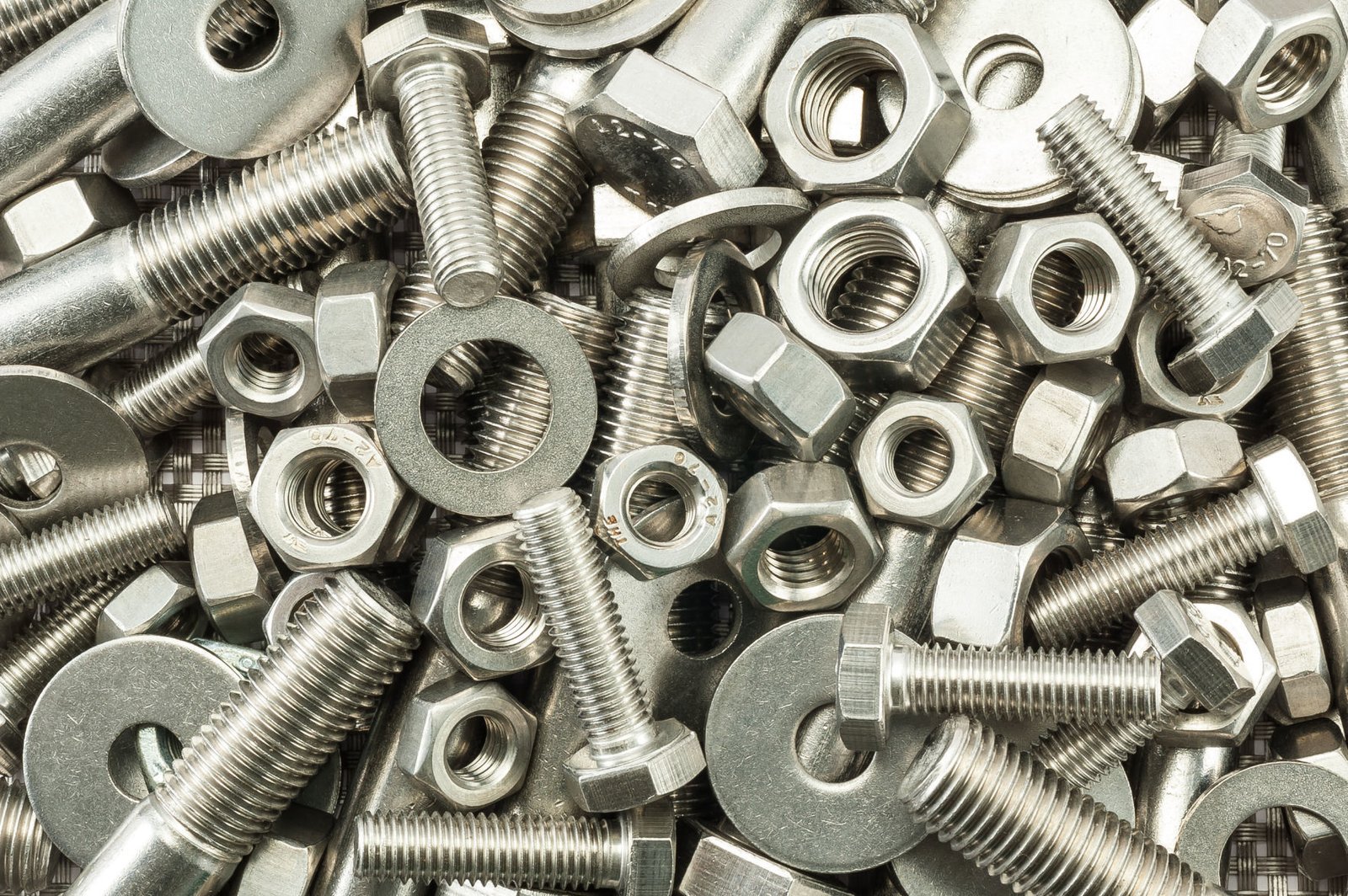Inconel 600 fasteners are engineered from a high-nickel alloy (nickel-chromium-iron) designed for extreme temperature and corrosion resistance. Used across aerospace, chemical, marine, and nuclear sectors, these fasteners are preferred for their exceptional mechanical strength and metallurgical stability in harsh operating environments.
This blog covers the composition, mechanical properties, technical standards, benefits, and industrial applications of Inconel 600 fasteners.
Chemical Composition of Inconel 600
The unique chemical structure of Inconel 600 is what grants it high resistance to oxidation and carburization. The approximate chemical composition is:
| Element | Content (%) |
|---|---|
| Nickel (Ni) | 72.0 (min) |
| Chromium (Cr) | 14.0 – 17.0 |
| Iron (Fe) | 6.0 – 10.0 |
| Manganese | 1.0 (max) |
| Carbon | 0.15 (max) |
| Silicon | 0.5 (max) |
| Sulfur | 0.015 (max) |
| Copper | 0.5 (max) |
Mechanical Properties of Inconel 600 Fasteners
| Property | Value |
|---|---|
| Tensile Strength | 655 MPa (min) |
| Yield Strength (0.2% Offset) | 310 MPa (min) |
| Elongation | 30% (min) |
| Hardness (Rockwell B) | 85 (approx.) |
| Density | 8.47 g/cm³ |
| Melting Point | 1354 – 1413°C |
These mechanical properties remain stable over a wide temperature range, making Inconel 600 fasteners ideal for cryogenic to high-heat environments (up to 1175°C).
Key Features and Benefits
-
Superior Oxidation Resistance: Performs reliably in high-temperature air and combustion gases.
-
Excellent Corrosion Resistance: Resists corrosion in acidic and alkaline environments including nitric acid, acetic acid, and seawater.
-
Non-Magnetic Properties: Retains magnetic neutrality in both annealed and cold-worked conditions.
-
High Metallurgical Stability: Resists sensitization and chloride-ion stress corrosion cracking.
-
Creep and Rupture Resistance: Maintains mechanical integrity under long-term thermal cycling.
Types of Inconel 600 Fasteners
-
Hex Bolts
-
Nuts (Hex, Heavy Hex)
-
Washers
-
Socket Head Cap Screws
-
Studs and Threaded Rods
-
U-Bolts and Eye Bolts
Each fastener is manufactured in compliance with international standards such as ASTM B166, ASME SB-166, DIN, ISO, and ANSI, ensuring uniformity in mechanical strength and dimensional tolerances.
Industrial Applications
1. Aerospace Engineering
-
Turbine engine components
-
Exhaust systems
-
Fasteners for afterburners
2. Chemical Processing
-
Heat exchangers
-
Reactor vessels
-
Acid piping systems
3. Power Generation
-
Steam generator tubing
-
Superheater tube supports
-
Nuclear reactor core bolting
4. Marine and Subsea
-
Offshore oil drilling rigs
-
Seawater handling systems
-
Saltwater valves and pumps
5. Pharmaceutical and Food Industries
-
Equipment exposed to sterilisation cycles
-
Pressure vessels operating under CIP and SIP
Fabrication & Machining Considerations
Inconel 600 fasteners are generally cold-formed but can be hot-worked between 1000°C and 1150°C. Due to work-hardening characteristics, special care is required during machining. Carbide tools and slow feed rates are recommended. Post-machining solution annealing is often required to relieve internal stress and ensure corrosion resistance.
Certifications and Testing
To meet stringent industry compliance requirements, Inconel 600 fasteners are usually subjected to the following tests:
-
Ultrasonic Testing (UT)
-
Positive Material Identification (PMI)
-
Hardness Testing
-
Intergranular Corrosion (IGC) Test
-
Radiographic Testing (RT) where applicable
These certifications ensure traceability, reliability, and end-use safety.
Why Choose Inconel 600 Fasteners?
Inconel 600 fasteners outperform traditional stainless steel fasteners when exposed to:
-
Elevated temperatures
-
Strong oxidizers
-
Reducing and carburizing atmospheres
-
Chloride-induced environments
This makes them a go-to option for engineers who cannot afford fastener failure in mission-critical environments.
Conclusion
Inconel 600 fasteners are a cornerstone of performance in high-stress, high-temperature, and highly corrosive environments. Their exceptional combination of physical, mechanical, and corrosion-resistant properties makes them indispensable in specialized industries. While they may come at a higher initial cost, the long-term operational reliability and lifespan savings justify the investment.
